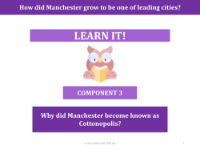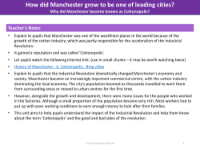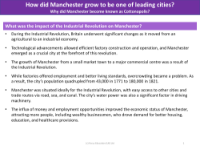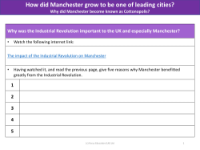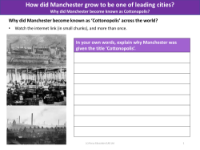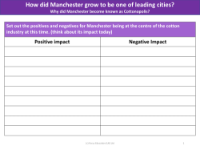Negative impact of the Industrial Revolution on Manchester - Info sheet
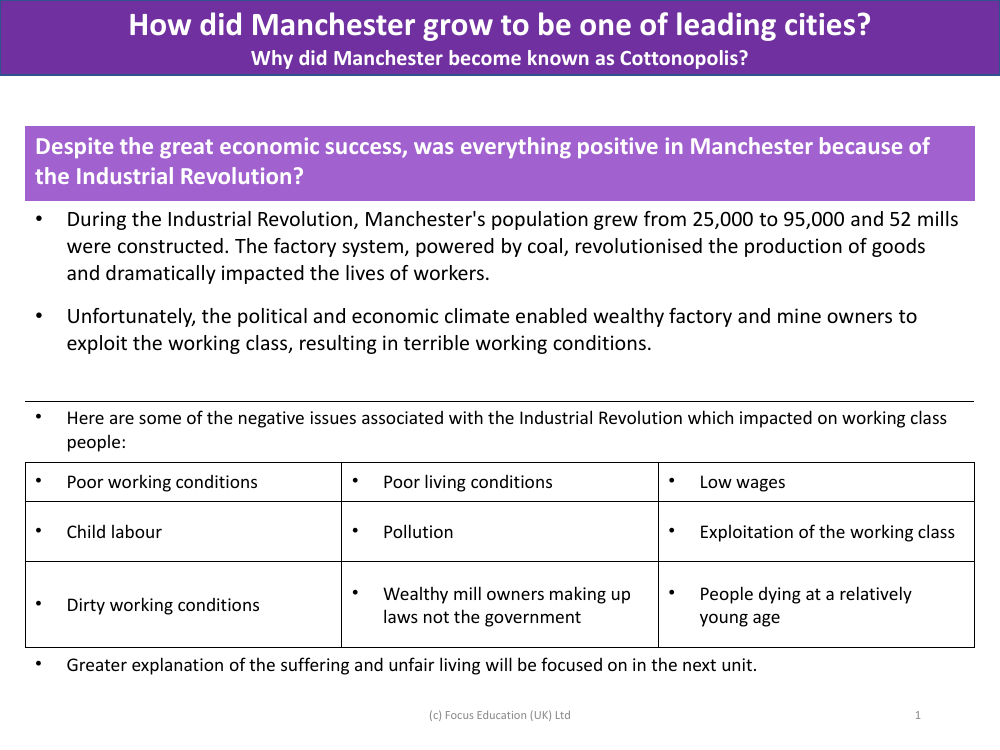
History Resource Description
The Industrial Revolution brought significant economic growth to Manchester, transforming it from a town of 25,000 inhabitants to a bustling city with a population of 95,000 and the construction of 52 mills. This period saw the introduction of the factory system, with coal as the driving force behind the mass production of goods. However, this rapid expansion and industrialisation were not without their downsides, particularly for the working-class population who suffered greatly due to the prevailing conditions.
The negative consequences of the Industrial Revolution in Manchester were many and varied. Workers faced appalling working conditions, often with long hours in dirty environments, and the housing they returned to was not much better—crowded, unsanitary, and inadequate. The wages for such toil were meagre, barely enough to survive on, and even children were not spared, as child labour was rampant. Pollution from factories filled the air, affecting the health of the populace. The exploitation by wealthy factory and mine owners was widespread, with these industrialists often exerting more influence over the creation of laws than the government itself. This led to a life of hardship for many, with people dying at a relatively young age. A more detailed exploration of the suffering and unfair living conditions endured by the working class during this era will be provided in the subsequent unit of study.
